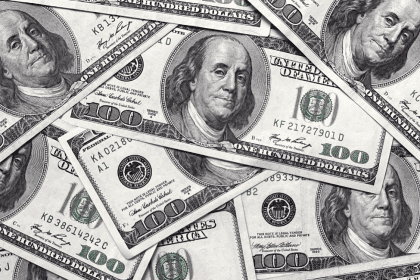
Party leaders have reached a budget deal, thereby avoiding financial collapse.
If the government defaulted on its loans, nearly everyone would be affected.
Yes, even you.
Like most families that are balancing their budgets to make ends meet, America, the most powerful country in the free world, spends more money than she earns. Thus, Uncle Sam borrows to pay for various programs and benefits.
America has maxed out her “credit cards” and if a higher spending budget wasn’t approved, she would have defaulted on her existing loans and wouldn’t be able to pay her bills.
Her financial obligations include checks that may see your fingertips. If you’re on active duty in the military, your checks would cease. If you own a credit card, your interest rate could soar; and if you’re a retiree, your 401-K savings could evaporate. Social Security payments? Forget about it.
As of right now, financial disaster has been averted just before the markets open.
Both sides compromised, thanks to a marathon congressional session, and in a nutshell, the rich will not be taxed, (what the Republicans wanted) and the government will not go into default (what the Obama administration wanted).
The budget deal cuts $1 trillion in government spending over the next decade, and it raises the country’s debt ceiling, that is, the borrowing limit.
President Obama wanted to reach a plan that would address taxes and long-term spending; however, averting the financial disaster was a victory for his administration. Obama said the compromise was “a serious down payment on the deficit reduction we need.”
House Speaker John Boehner of Ohio told his fellow Republicans that, “the White House bid to raise taxes has been shut down. And as I vowed back in May … every dollar of debt-limit increase will be matched by more than a dollar of spending cuts.”
The brokered deal has two phases: Phase one spells victory for both parties, as there will be no tax increase for the rich and there will be no benefits cut for the poor, i.e., Social Security or Medicare benefits will remain intact. In phase one, the $14.3-trillion debt ceiling increases by at least $2.2 trillion, creating a cushion for the U.S. Treasury. In 2013, during the second phase, however, both items, higher taxes for the rich and reduced benefits for the poor, will become targets once again as $1 trillion-reduction in discretionary spending must take place.
Also, a bipartisan committee must identify an additional $1.8 trillion in cuts before Congress breaks for the Thanksgiving holiday. If this goal isn’t met, lawmakers will vote on a balanced budget amendment to the Constitution.
Here’s what happens now: Speaker Boehner will present the budget deal before the Republican caucus, and Senate Majority Leader Harry Reid of Nevada will take the budget before the Democrats later today.
Votes are not expected until later today, as members must review the budget.
President Obama said that the leaders of both parties in both chambers have reached an agreement that will reduce the deficit and avoid default.
Financial collapse has been avoided, for now.
















